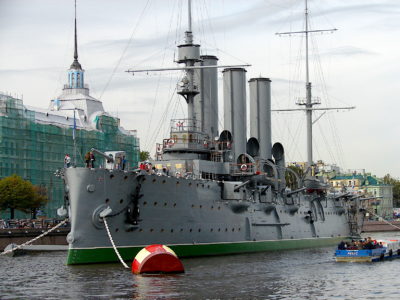PEPE ESCOBAR: The Unipolar Moment is Over
The Russia-China strategic partnership, consolidated last week in Russia, has thrown U.S. elites into Supreme Paranoia mode, which is holding the whole world hostage.
By Pepe Escobar
Special to Consortium News
After a stroll, they took a boat on the Neva River, visited the legendary Aurora cruiser, and dropped in to examine the Renaissance masterpieces at the Hermitage. Cool, calm, collected, all the while it felt like they were mapping the ins and outs of a new, emerging, multipolar world.
Chinese President Xi Jinping was the guest of honor of Russian President Vladimir Putin. It was Xi’s eighth trip to Russia since 2013, when he announced the New Silk Roads, or Belt and Road Initiative (BRI).
First they met in Moscow, signing multiple deals. The most important is a bombshell: a commitment to develop bilateral trade and cross-border payments using the ruble and the yuan, bypassing the U.S. dollar.
Then Xi visited the St. Petersburg International Economic Forum (SPIEF), Russia’s premier business gathering, absolutely essential for anyone to understand the hyper-complex mechanisms inherent in the construction of Eurasian integration. I addressed some of SPIEF’s foremost discussions and round tables here.
In Moscow, Putin and Xi signed two joint statements – whose key concepts, crucially, are “comprehensive partnership”, “strategic interaction” and “global strategic stability.”
It was obvious this was slowly brewing for the past five to six years. Now the deal is in the open. The Russia-China comprehensive strategic partnership is thriving; not as an allied treaty, but as a consistent road map towards Eurasia integration and the consolidation of the multipolar world.
Russia’s Ministry of Foreign Affairs better get ready to dismiss virtually everyday statementscoming, for instance, from the Chairman of the Joint Chiefs of Staff, Gen. Joseph Dunford, when he alleges that Moscow aims to use non-strategic nuclear weapons in the European theater. It’s part of a non-stop process – now in high gear – of manufacturing hysteria by frightening NATO allies with the Russian “threat.”
Moscow better get ready to dodge and counteract reams of reports such as the latest from the RAND corporation, which outlines – what else? – Cold War 2.0 against Russia.
In 2014, Russia did not react to sanctions imposed by Washington. Then, it would have sufficed to merely brandish the threat of default on $700 billion in external debt. That would have killed the sanctions.
Now, there’s ample debate inside Russian intelligence circles on what to do in case Moscow faces the prospect of being cut off the CHIPS-SWIFT financial clearing system.
The war on Huawei – the Rosebud of China’s 5G supremacy – has been identified as an attack on the dragon’s head. The attack on Huawei means an attack not only on tech, mega-hub Shenzhen, but the whole Pearl River Delta: a $3 trillion yuan ecosystem, which supplies the nuts and bolts of the Chinese supply chain for high-tech manufacturers.
Enter the Golden Ring
Neither China’s technological rise, nor Russia’s unmatched hypersonic know-how have caused America’s structural malaise. If there are answers they should come from the Exceptionalist elites.
The problem for the U.S. is the emergence of a formidable peer competitor in Eurasia – and worse still, a strategic partnership. It has thrown these elites into Supreme Paranoia mode, which is holding the whole world hostage.
By contrast, the concept of the Golden Ring of Multipolar Great Powers has been floated, by which Turkey, Iraq, Iran, Pakistan, Russia and China might provide a “stability belt” along the South Asia Rimland.
I have discussed variations of this idea with Russian, Iranian, Pakistani and Turkish analysts – but it sounds like wishful thinking. Admittedly all these nations would welcome establishing the Golden Ring; but no one knows which way Modi’s India would lean – intoxicated as it is with dreams of Big Power status as the crux of America’s “Indo-Pacific” concoction.
It might be more realistic to assume that if Washington does not go to war with Iran – because Pentagon gaming has established this would be a nightmare – all options are on the table ranging from the South China Sea to the larger Indo-Pacific.
The Deep State will not flinch to unleash concentric havoc on the periphery of both Russia and China and then try to advance to destabilize the heartland from the inside. The Russia-China strategic partnership has generated a sore wound: it hurts – so bad – to be a Eurasia outsider.
Pepe Escobar, a veteran Brazilian journalist, is the correspondent-at-large for Hong Kong-based Asia Times. His latest book is “2030.” Follow him on Facebook.







Geen opmerkingen:
Een reactie posten